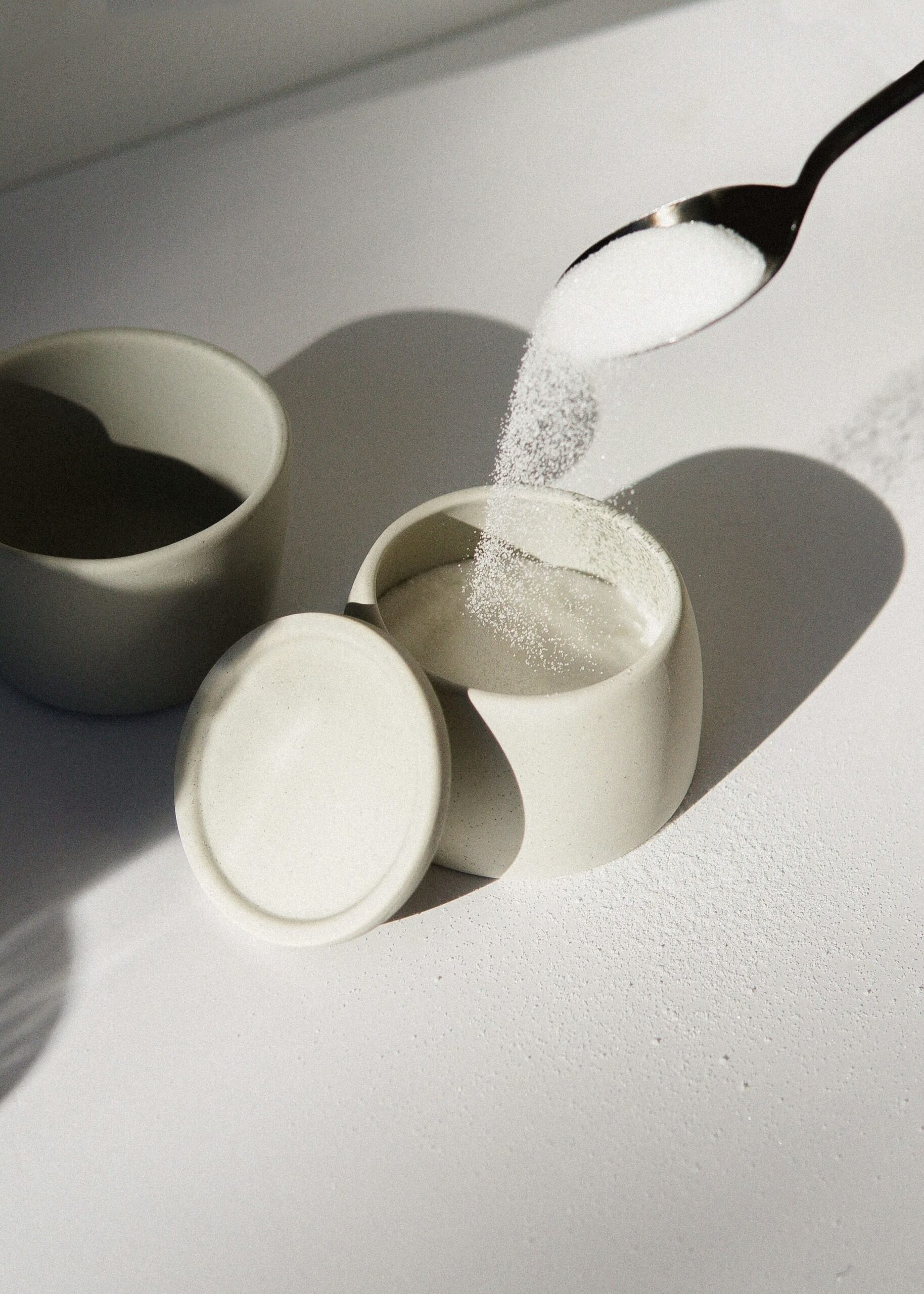There’s a lot of chatter out there about sugar—what’s natural, what’s refined, and what’s actually “good” for you. As both a baking enthusiast AND a nutritionist and wellness coach, I’m here to share some hot takes on this topic, debunking the sugar myths once and for all. Let’s dive into the nutrition truth and sprinkle in a bit of food science along the way.
Quick Biochemistry of Sugar
At its core, sugar is sugar. Whether you’re using coconut sugar, date syrup, or the standard white granulated variety, your body breaks them down into the same basic components: glucose and fructose. When you ingest any type of sugar, enzymes in your digestive system— primarily sucrase —split sucrose into these two simple sugars. Glucose then enters your bloodstream to provide energy, while fructose is processed mainly in the liver. This means that despite the marketing hype behind so-called unrefined sugar, the end result is fundamentally the same. Yes, some alternative sugars may come with a trace of minerals, but the amounts are so minuscule that they hardly tip the scales when it comes to healthy eating. We hardly think of sugar as a key source of minerals, right? (we have fruit and vegetables for that!)
Debunking the Sugar Myths – Which Sugar is the Healthiest?
There’s a prevalent belief that certain sugars, like coconut sugar, are somehow superior because they’re less processed. As a nutritionist with love for baking I wish that was true! But let’s get this cleared up: while alternative sugars can add a subtle flavour twist, they don’t magically transform into a health food. The key takeaway here – as often in nutrition – is moderation. Focusing on a balanced diet is much more important than obsessing over whether one type of sugar is marginally “better” than another. This is especially true for baking enthusiasts or bloggers, where taste and texture matter more than nutritional marketing. So next time you’re tempted to splurge on a fancy, unrefined sugar or coconut sugar because of its “nutrient profile,” remember that it’s still just sugar.
Sweeteners and Sugar Substitutes: A Double-Edged Sword
What about sweeteners? They can be a useful tool for cutting back on overall sugar consumption, but they’re not a silver bullet. Some sweeteners may even disrupt your gut microbiome, have negative impact on digestion or gut health if ingested regularly or prolong the sugar cravings. t’s all about balance — using a sweetener every now and then might work for you, but don’t fall into the trap of thinking that “zero-calorie” equals “zero impact.” Real food in its unadulterated form is generally best, and there’s no need to overcomplicate things with endless substitutions or hefty price tags.
Practical Tips for Balanced Sugar Intake
So, what’s the takeaway for someone who loves to bake AND cares about healthy eating? Here are a few practical tips:
- Moderation is Key: Enjoy your favorite sweet treats, but be mindful of portion sizes. It’s easy to overdo it when sugar is hiding in so many processed foods.
- Focus on the Whole Picture: Instead of fixating on swapping one sugar type for another, work on incorporating nutrient-dense foods into your diet.
- Know What You Eat: Personalised nutrition helps you understand where your nutrients come from, how different foods fuel your body, and how to practice moderation in a way that works for you.
- Experiment in the Kitchen: Try using natural flavour boosters like spices or extracts to reduce the need for added sugar in your recipes. Dates, bananas or apple sauce can be alternatives that not only taste great but also add nutrients to any baked goods.
So, what is the bigger issue I see as a nutritionist working with women and men over 40? I’d argue that it’s NOT a spoonful of sugar in your baking you consciously choosing. It’s the excess sugar hiding in ‘healthy’ snacks, granola, sauces—all the stuff you don’t even realise is adding up. But that’s sort of another story!
Sugar isn’t evil, but too much of it isn’t good for the body either. So, bake with what you like, enjoy it in moderation, and stop overthinking whether coconut sugar is superior (spoiler: it’s not).
Note: This information may not apply to individuals with diabetes or other chronic conditions requiring specific dietary management. This post is for informational purposes only and should not be considered personalised medical advice. Always consult a registered nutritionist or a healthcare professional for guidance tailored to your individual needs. Consider working with me and check my personalised nutrition and coaching services.
